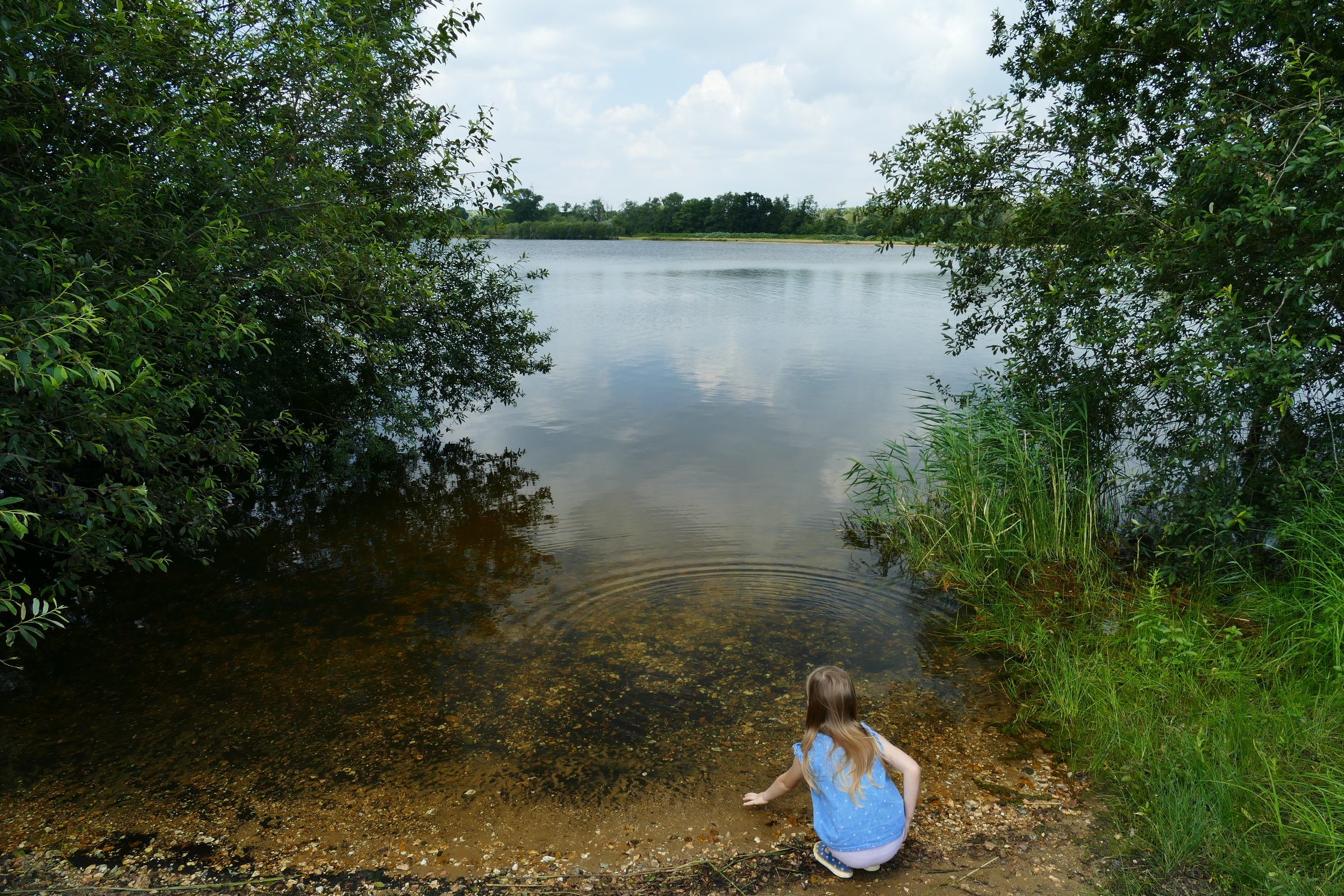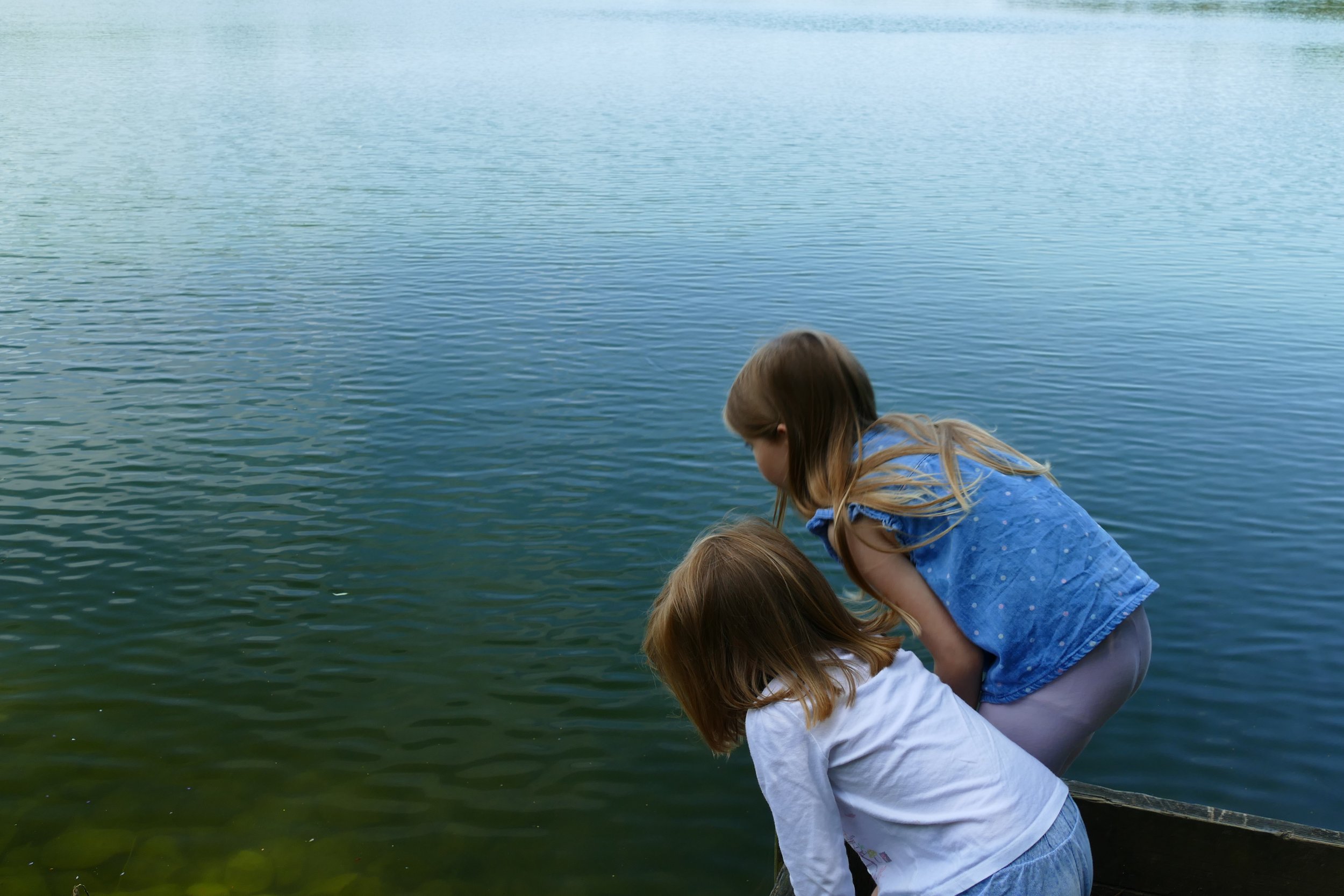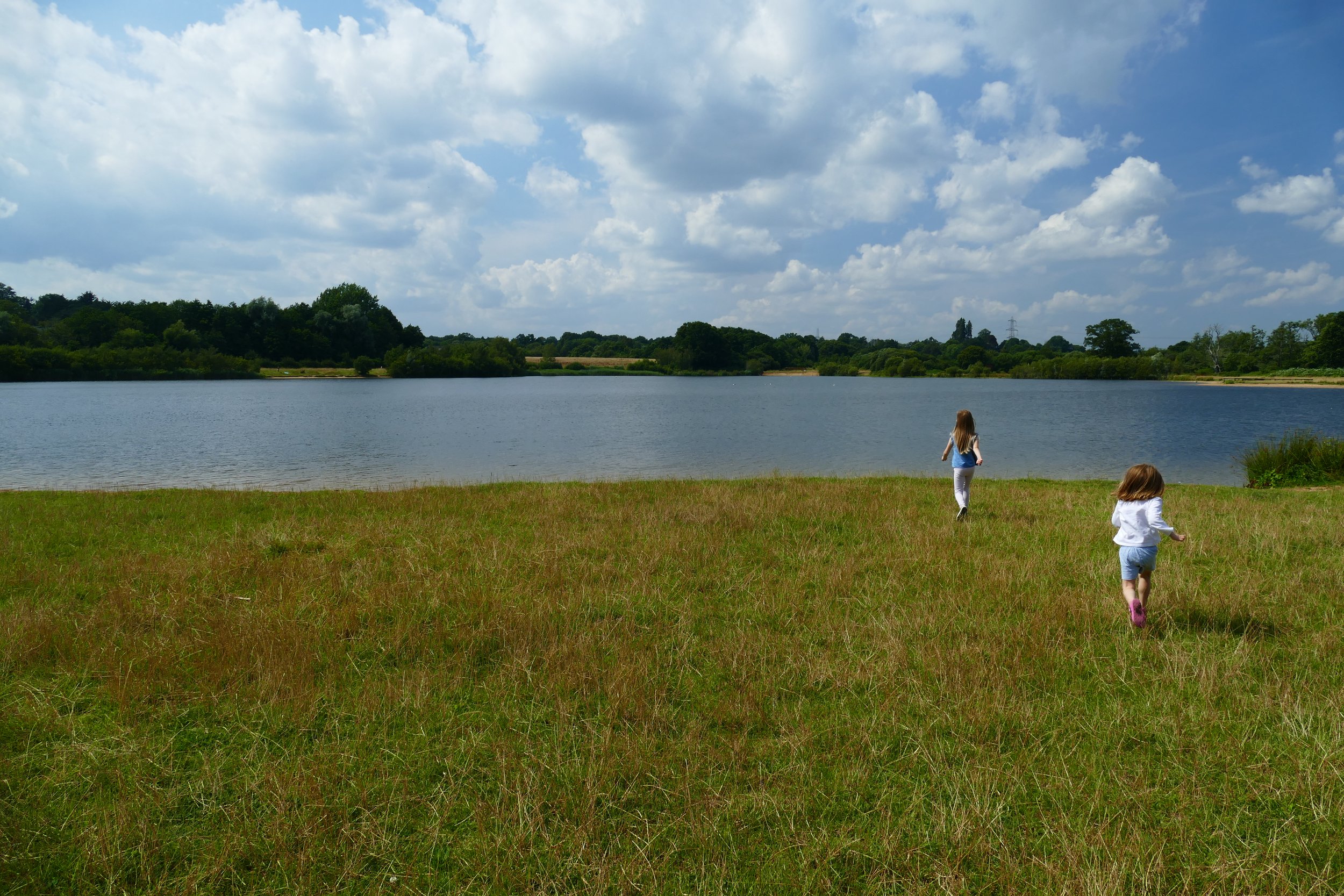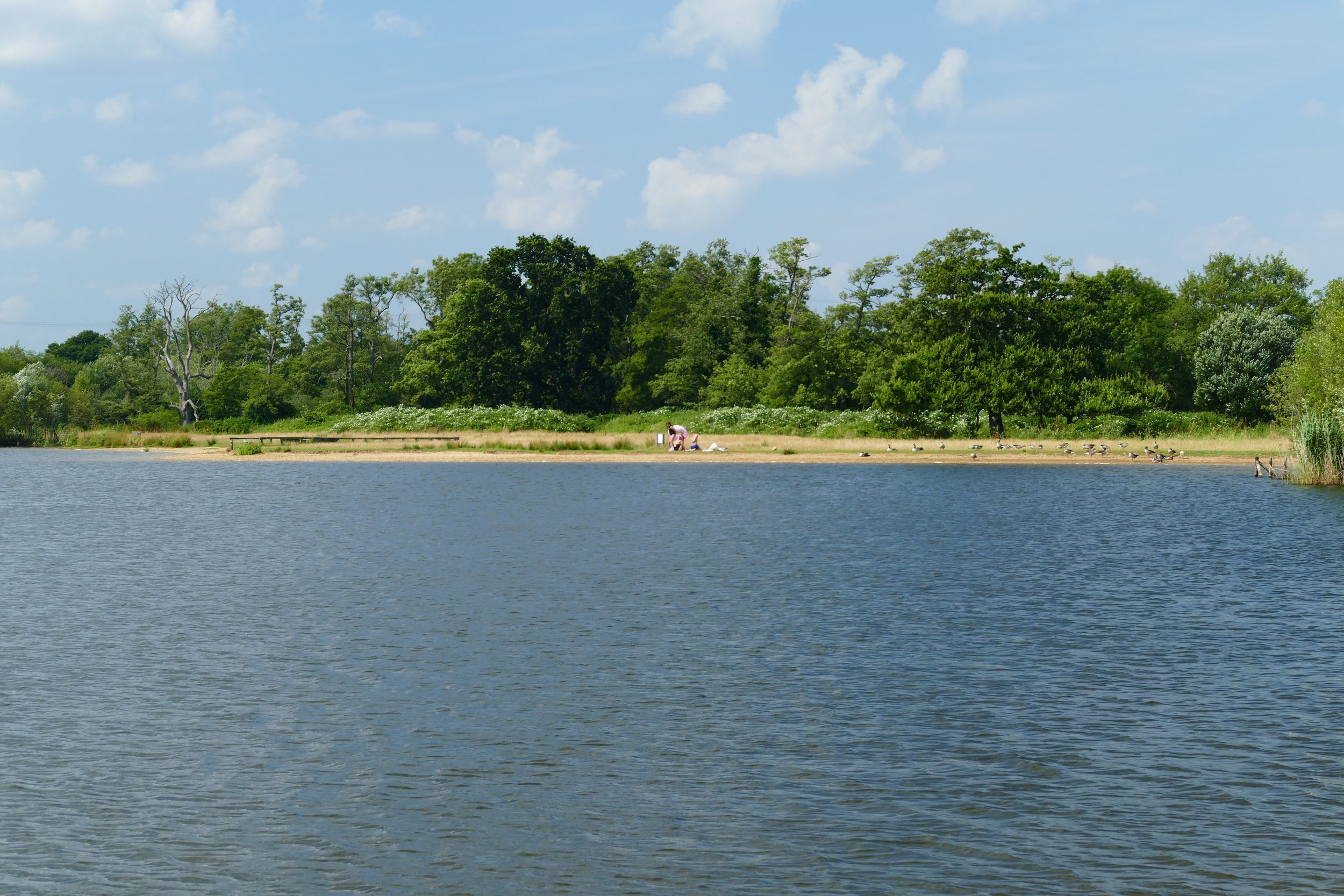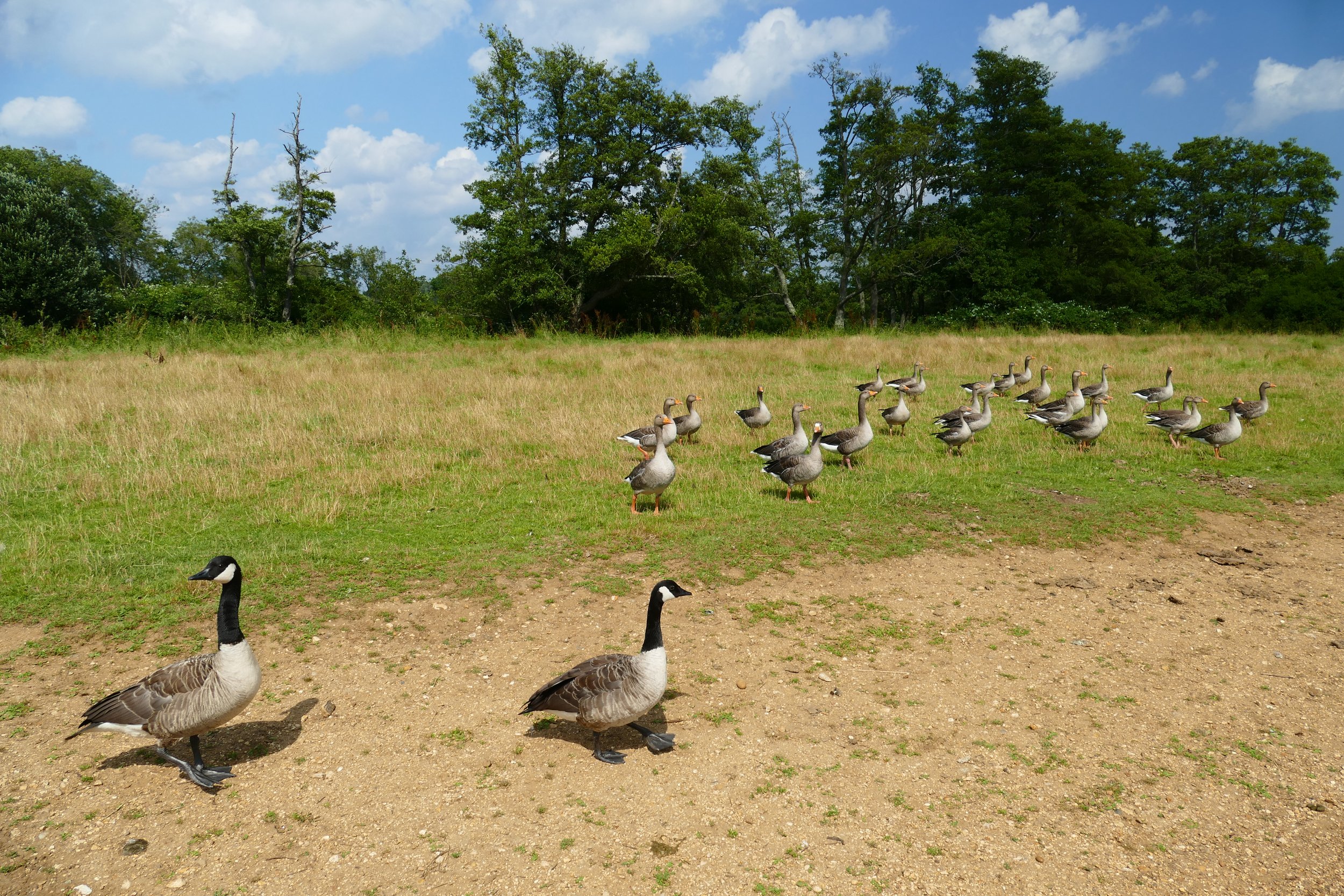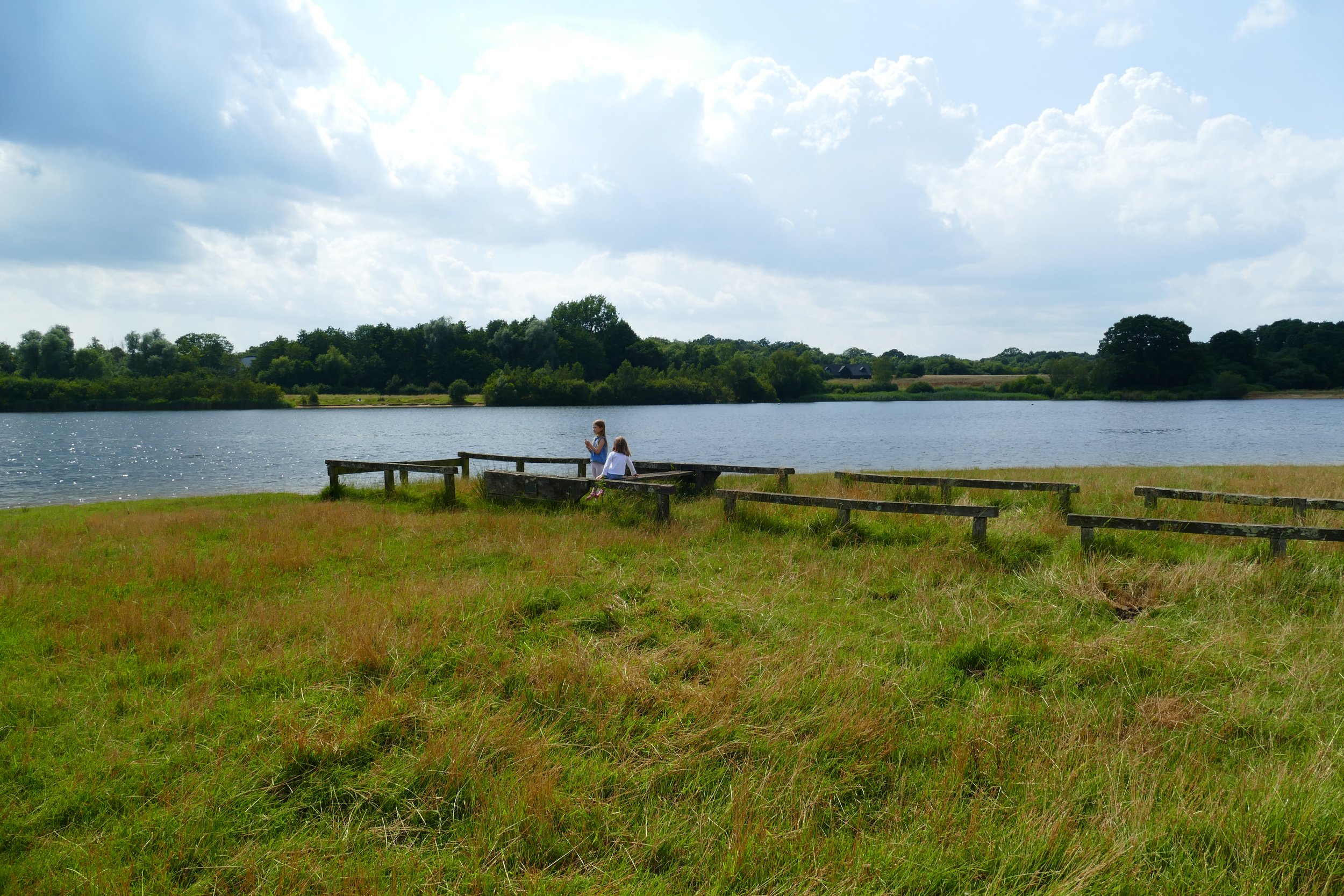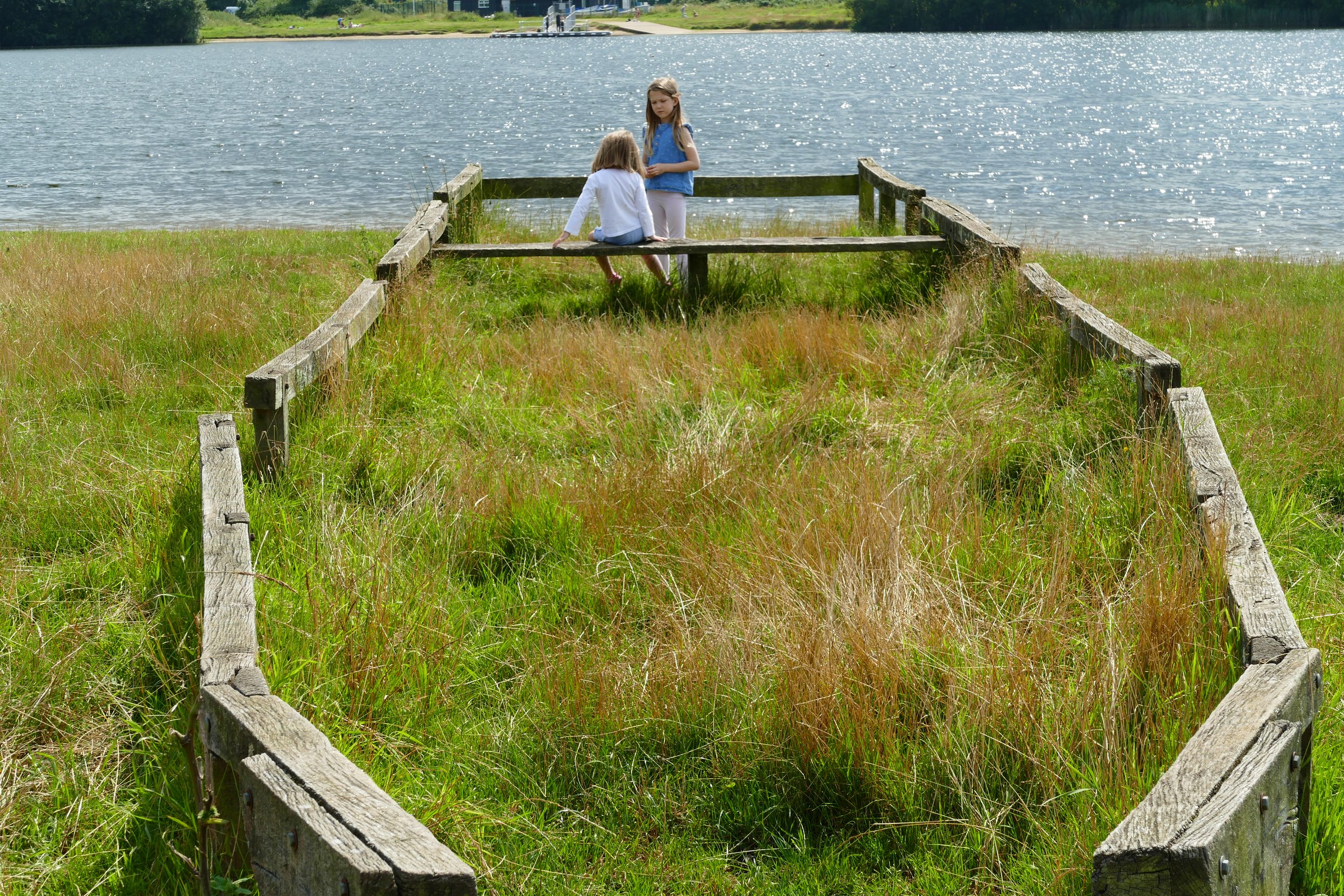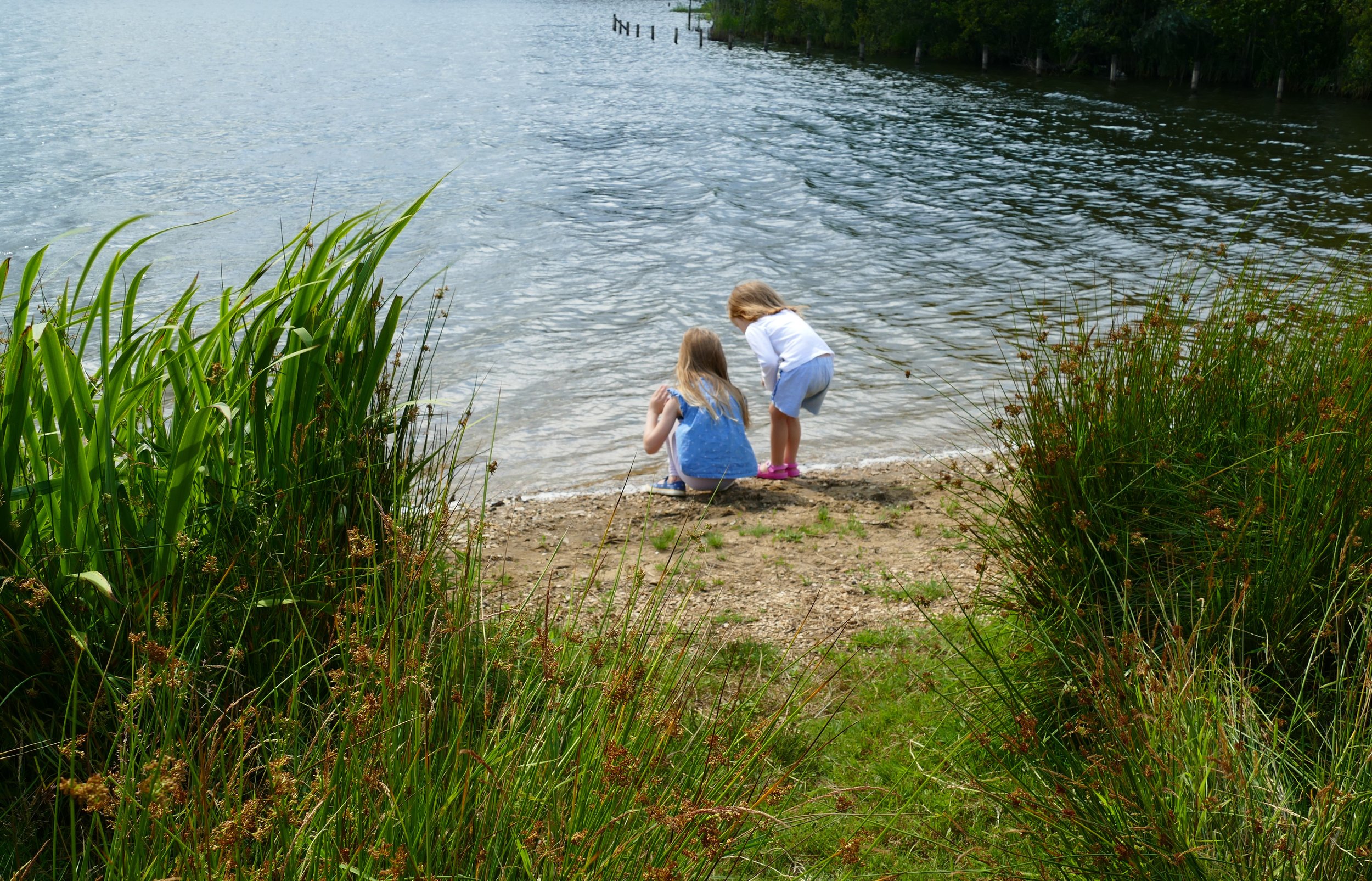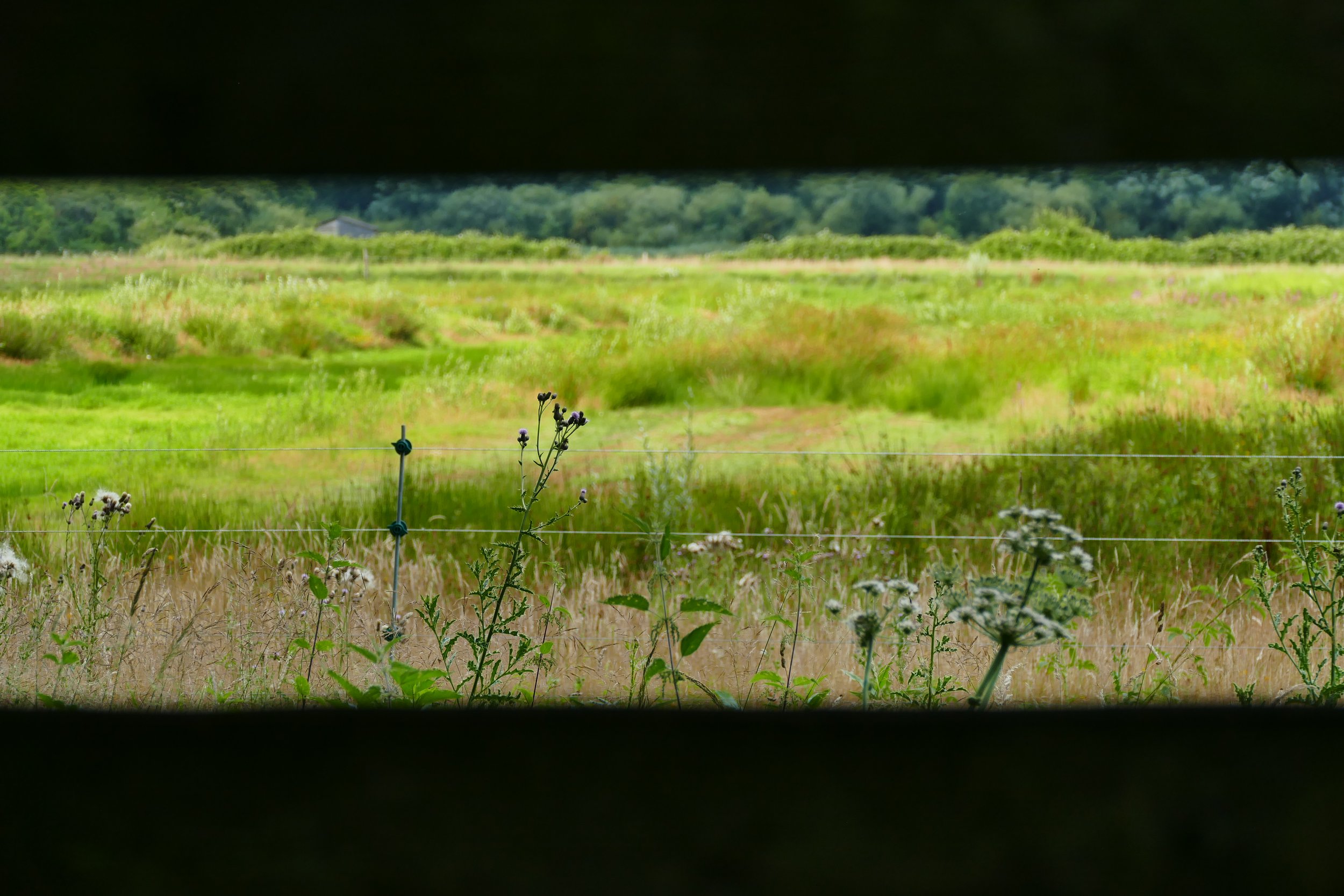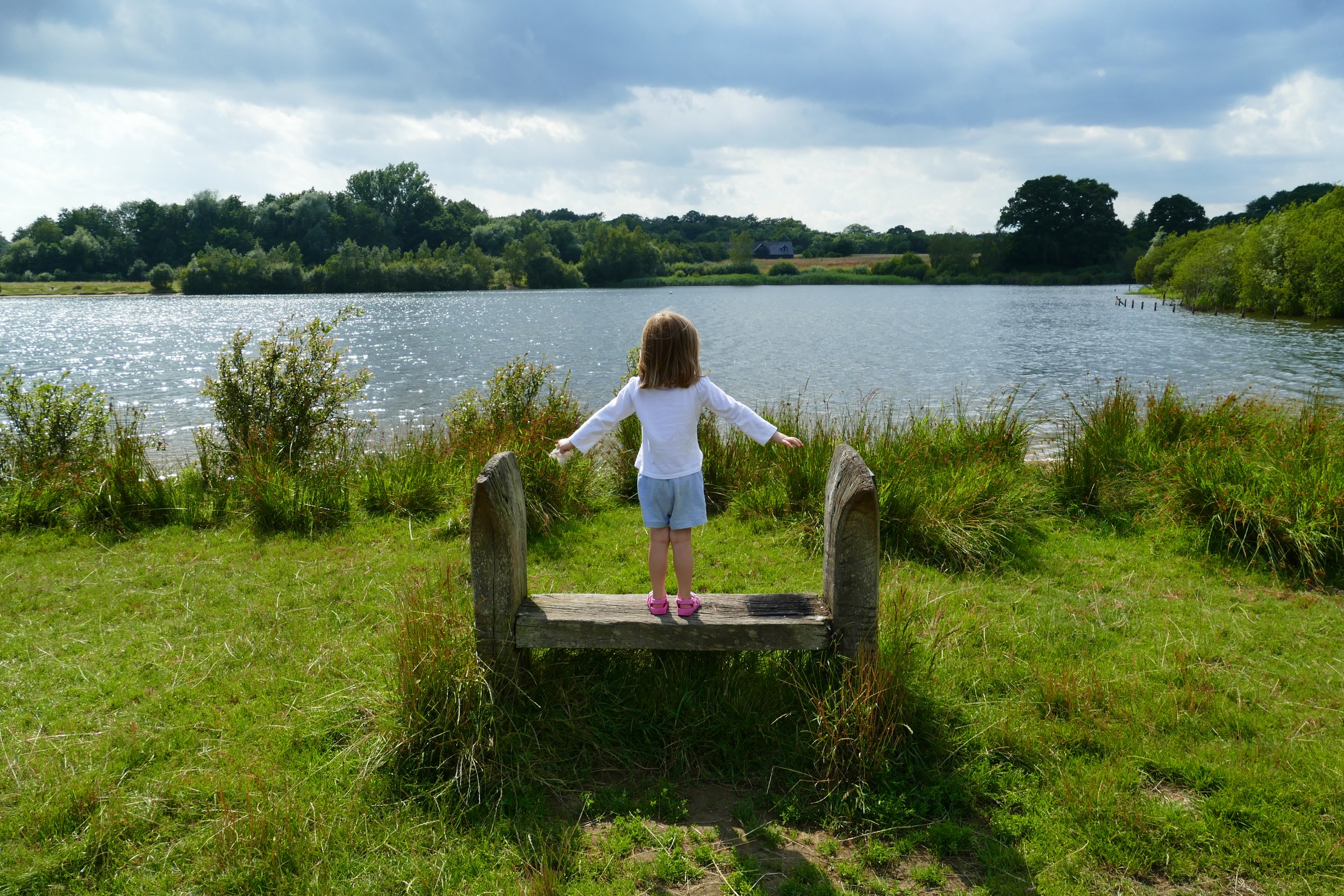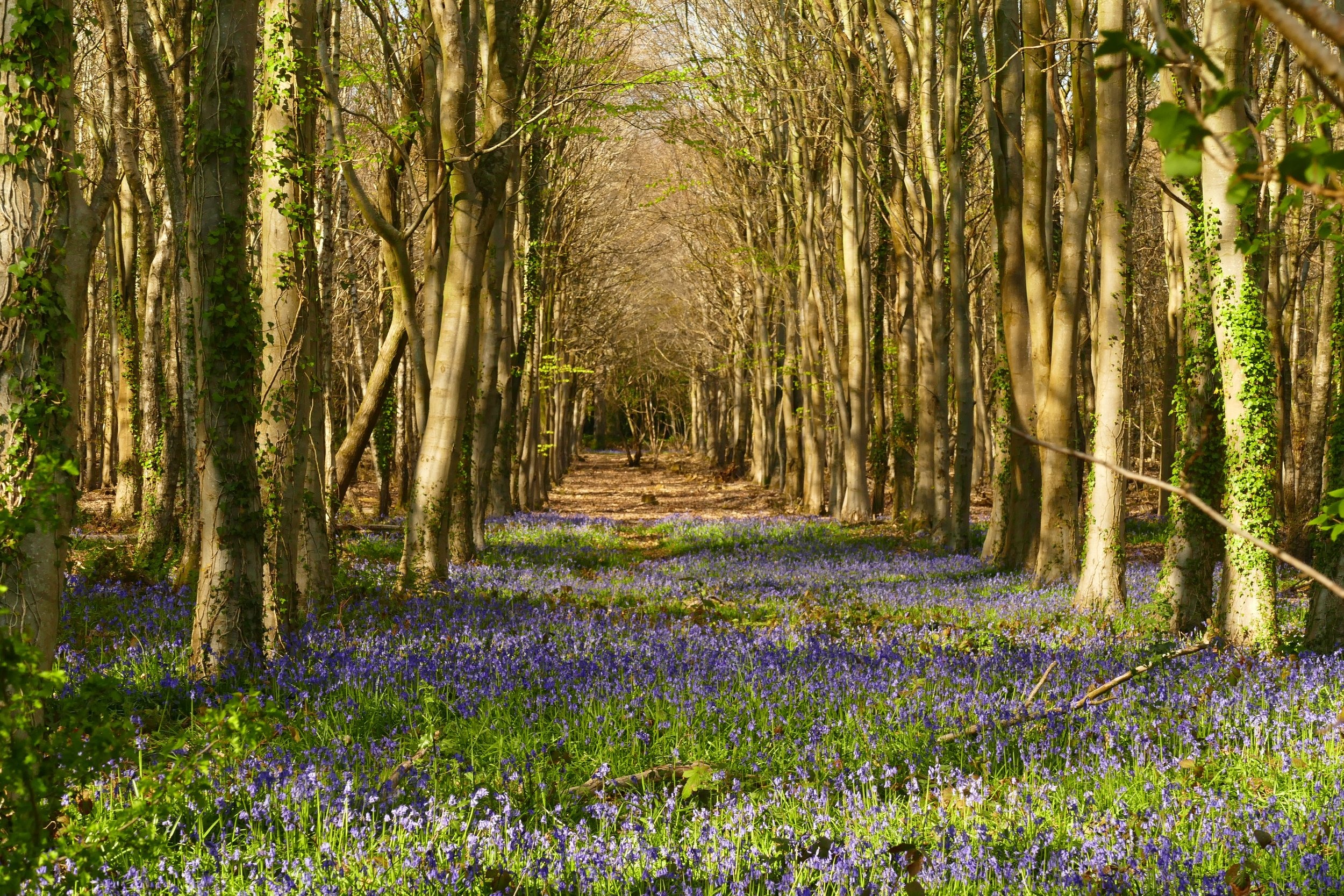Testwood Lakes
Southampton
On this walk, children will enjoy the frame of a reconstructed ship, a bronze age roundhouse and bird hides - bring some binoculars!
Testwood Lake is the biggest of the two lakes
The Basics
Time: Approximately 1 hour to see everything
Distance: 2.2 km
Terrain: Well maintained gravel paths
Pushchair: Yes - there are some kissing gates, but the clearance is quite wide
Dogs: Yes, around Testwood and Little Testwood lakes, but not around Meadow Lake or The Scrapes where the bird hides and round house are. Avoid them entering the water due to blue green algae
Refreshments: None on site, but there is a Starbucks on Eddystone Road very near the entrance to Testwood Lakes
Toilets: When the visitor centre is open
Public Transport: Bluestar No. 12 runs every half hour, Monday to Saturday and every hour on Sundays from Southampton calling at Testwood Crescent which is ½ mile from the reserve. Wilts & Dorset X7 runs hourly Monday to Saturday from Southampton to Testwood Crescent.
Parking: Free car park open every day between 8am and 4pm during winter and 8am until 5pm during the summer (Postcode: SO40 3WX - W3W: manliness/contained/headlines)
This structure represents the remains of a bronze age boat discovered here when the lakes were created
Testwood Lakes is a wildlife haven on the edge of Southampton. You would never guess how close you are to the M27 while you are enjoying easy paths around the lakes of the peaceful nature reserve. Some of the highlights you will discover are bird hides and a replica Bronze Age roundhouse.
The Route
Leave the car park and begin in an anti-clockwise direction with the water to your right. As you come close to the head of Testwood Lake, you will see signs to the education centre which is up to your left. If you want a pushchair friendly route to the bird hides and roundhouse, turn left here and then follow the signposts from the education centre. Alternatively, you can reach the bird hides and roundhouse via a left hand track a little bit further on, where there is another sign for the education centre. Either route to the bird hides will involve you walking back to Testwood Lake via the route you came. Please note, dogs are not allowed in this section of the reserve.
To continue the walk around the lakes, go through the metal kissing gate and return to Testwood Lake, keeping the water to your right. As you round the top of the lake, look out for some viewing slits in the wooden panels where you can see some of the wildlife in the top part of the reserve. Continue down the other side of the lake, on the opposite shore to the car park. Along this side, you will also find the River Blackwater. Also look out on the shoreline for the reconstruction of the frame from a bronze age boat found at the site.
A little further on, you will have the choice to continue your walk around Little Testwood Lake, or cross over the causeway between the two lakes and return to your car sooner.
Did you know?
During construction of Testwood Lakes, Wessex Archaeology discovered plenty of evidence of bronze age society including part of the earliest bridge discovered in England.
If you enjoyed this walk…
…try this one at Swanick Lakes which has a similar selection of little man made lakes to walk around.
We are passionate about keeping The Ambling Path as a free resource available to everyone, forever. If you have enjoyed using our walking guides, then please consider leaving us a donation. This will help to cover our costs as well as rewarding the considerable time and effort needed to maintain the site. Thank you.



